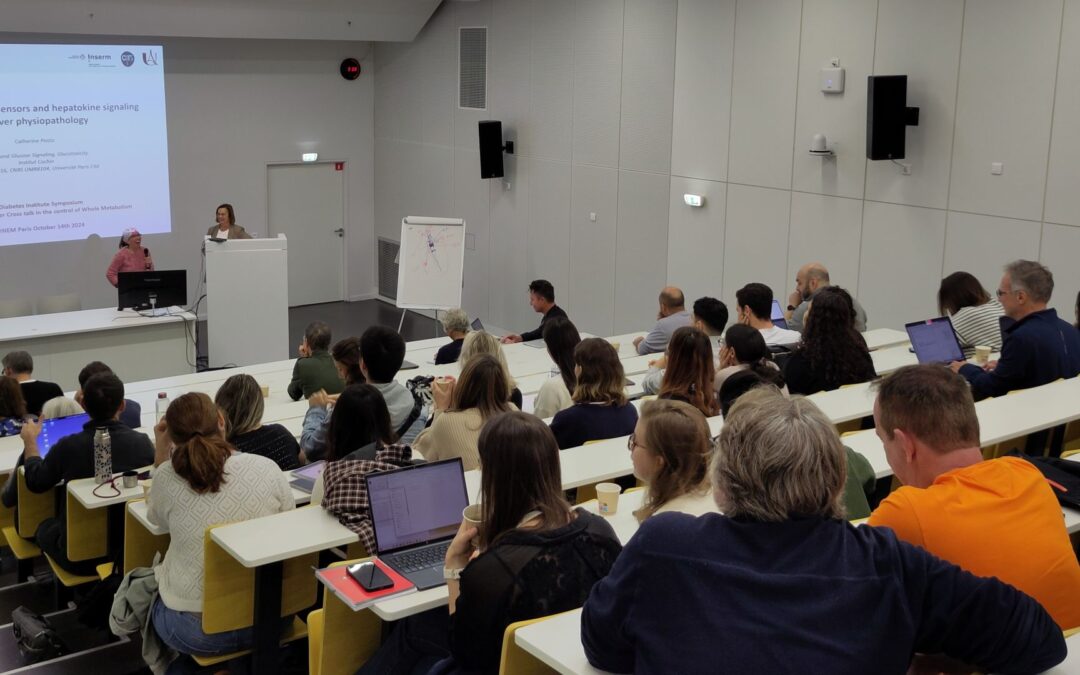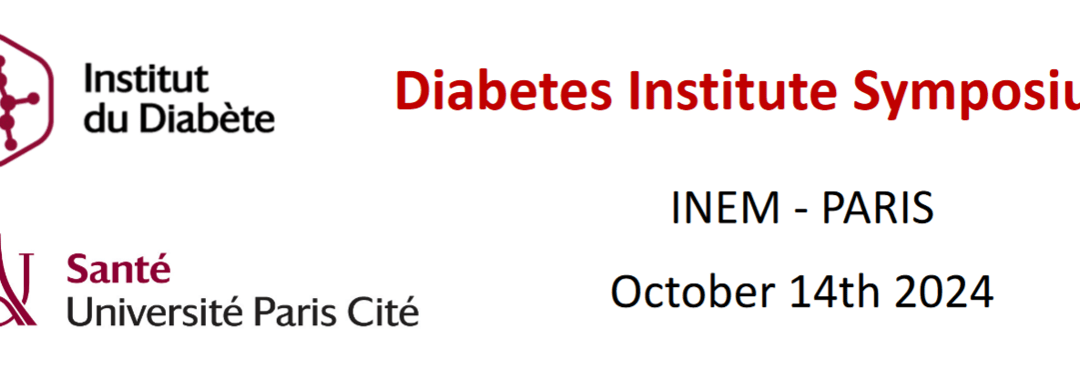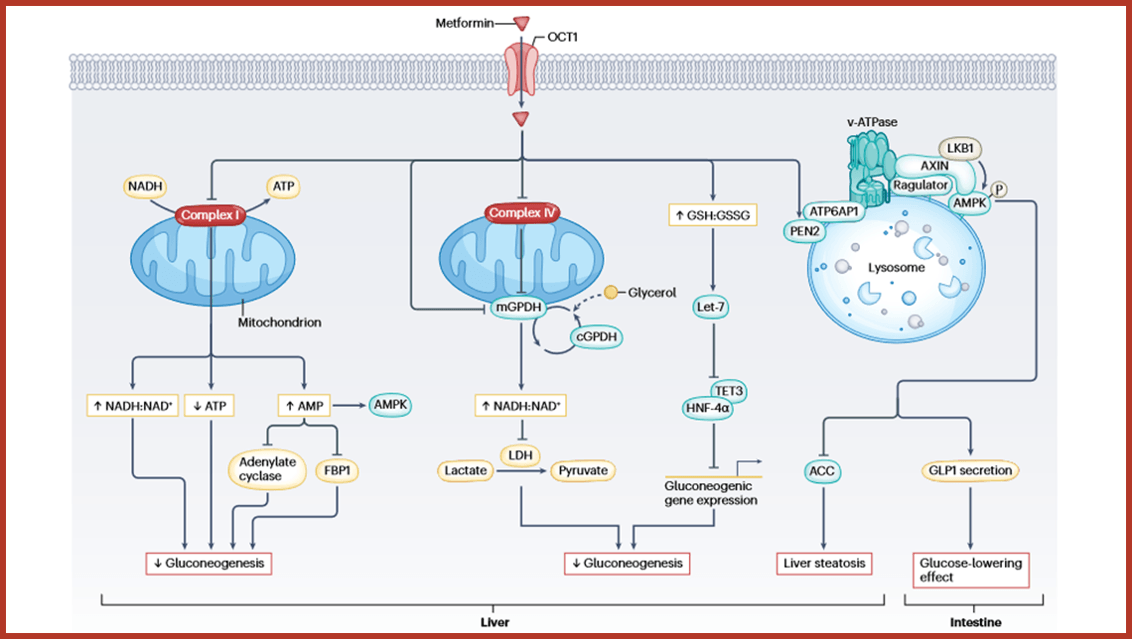Marc Foretz, Bruno Guigas & Benoit Viollet
©
Abstract
Currently, metformin is the first-line medication to treat type 2 diabetes mellitus (T2DM) in most guidelines and is used daily by >200 million patients. Surprisingly, the mechanisms underlying its therapeutic action are complex and are still not fully understood. Early evidence highlighted the liver as the major organ involved in the effect of metformin on reducing blood levels of glucose. However, increasing evidence points towards other sites of action that might also have an important role, including the gastrointestinal tract, the gut microbial communities and the tissue-resident immune cells. At the molecular level, it seems that the mechanisms of action vary depending on the dose of metformin used and duration of treatment. Initial studies have shown that metformin targets hepatic mitochondria; however, the identification of a novel target at low concentrations of metformin at the lysosome surface might reveal a new mechanism of action. Based on the efficacy and safety records in T2DM, attention has been given to the repurposing of metformin as part of adjunct therapy for the treatment of cancer, age-related diseases, inflammatory diseases and COVID-19. In this Review, we highlight the latest advances in our understanding of the mechanisms of action of metformin and discuss potential emerging novel therapeutic uses.
Key points
-
The liver and gut are the main target organs for metformin.
-
Mitochondria and lysosomes are the organelle targets in the glucose-lowering effect of metformin.
-
Host–gut microbiota interactions contribute to metformin’s therapeutic effects.
-
Metformin has anti-inflammatory and immunomodulatory properties in various immune-related diseases through AMPK-dependent and AMPK-independent mechanisms involving both the innate and adaptive immune systems.
-
Metformin therapy in patients with type 2 diabetes mellitus enhances the release of GDF15, which might facilitate weight loss but is not required for the effect in reducing blood levels of glucose.
Learn more about this article

Post Doctoral Position
Fully funded 2-year Post-doctoral position in the team of Dr. Ralf JOCKERS, at Institute Cochin

2024 Scientific Annual Day of the Diabetes institute
On Monday, October 14th, the annual Diabetes Institute Scientific Day took place, bringing together around 100 participants at the INEM. Opening of the Annual Scientific Day of the Diabetes Institute Maude LE GALL - Co-Director of the institute (left) Catherine POSTIC...

Diabetes Institute scientific day
The overall goal of this Diabetes Institute scientific day is to provide the most important and up-to-date research in the field of metabolism made at University Paris Cité. The workshop will focus on understanding the recent progress in adipose tissue and liver biology including metabolic and inflammatory processes in the control of the energy homeostasis. Special emphasis will be done to highlight the importance of the organ crosstalk and how signaling pathways in one tissue could affect the metabolism in other tissue.

Les jeunes de l’IHM seront à l’EASD
L’IHM Diabète est heureux d’aider les jeunes à participer à l’EASD en leur attribuant une bourse de 1000€
Rendez-vous en Septembre à Madrid !

